Publications
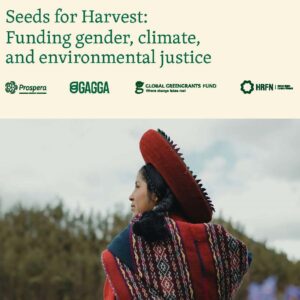
Seeds for Harvest: Funding gender, climate, and environmental justice
Through data analysis, case studies, trends & opportunities, Seeds for Harvest, published in collaboration with Prospera, GAGGA, and HRFN, brings new insights to the funding landscape for gender, environmental & climate justice.
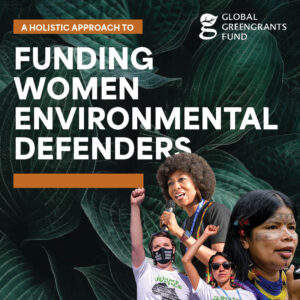
A Holistic Approach to Funding Women Environmental Defenders
This report offers an overview of the state of funding for women facing violence due to their environmental activism and makes concrete recommendations for a more holistic philanthropic approach to supporting them.
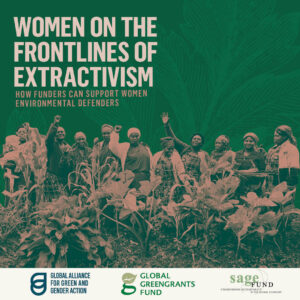
Women on the Frontlines of Extractivism: How Funders Can Support Women Environmental Defenders
This report draws upon and synthesizes independent research conducted by GAGGA, Global Greengrants, and SAGE Fund. It aims to expose how natural resource extraction both fuels and reinforces structural violence, with particular attention to the impacts on women and girls.
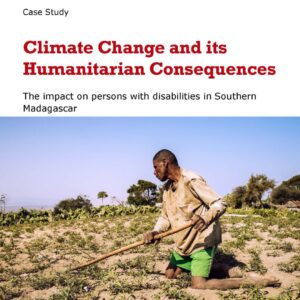
Climate Change and its Humanitarian Consequences: The impact on persons with disabilities in Southern Madagascar
Reflecting on experiences from Organisations of Persons with Disabilities (OPDs) partner, the Plateforme des Fédérations des Personnes Handicapées de Madagascar (PFPH-MAD) funded by the Global Greengrants Fund and the humanitarian response initiated by CBM Global, this study shares learnings on the impact of the climate crisis in Madagascar, the ongoing food crisis and the challenges faced by persons with disabilities and their representative organisations in accessing humanitarian assistance.
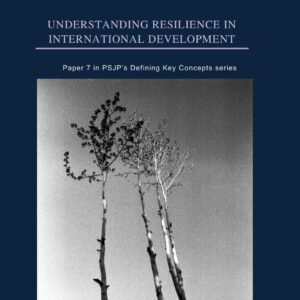
Understanding Resilience in International Development
Since 2020, as part of its Defining Key concepts series, Philanthropy for Social Justice and Peace (PSJP) has been addressing whether resilience - the buzzword of the moment, is a useful concept in development. Initial results were published in 2021 in "Building resilience in international development." In this follow-up report, PJSP, in collaboration with Global Greengrants Fund, TrustAfrica, and Impact Trust, attempts to develop an understanding of resilience in development and philanthropy so that it can be applied more meaningfully in our work.
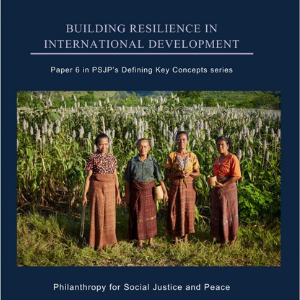
Building Resilience in International Development
The events of 2020, including the COVID-19 pandemic, the ever-gathering climate catastrophe, and the global reverberations of calls against structural racism, have drawn attention to the concept of resilience. People are asking, "How can we cope and survive?" and "How can we make sure that we build back better from this crisis?". This paper considers what resilience looks like in practice. It is based on the work of Global Greengrants Fund UK, Tewa, and Harvard Humanitarian Initiative.
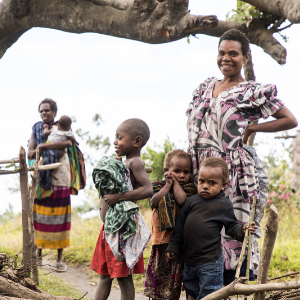
Fostering Climate Resilience: Lessons from flexible, community-based grantmaking in the Pacific Islands
How do grants help communities build climate resilience? This was the pressing question Global Greengrants Fund examined in the Pacific Islands – a region that has much to teach the rest of the world. Locally-based advisors and grantees came together over a two-year period to review 43 grants distributed across Pacific Island communities in the period 2016-2018, to consider what could be learned from the grant support. Overall, they found that a flexible, community-based approach to funding, especially in the aftermath of cyclones, strengthened not only community infrastructure, but also strengthened relationships and processes – equally necessary foundations for resilience.
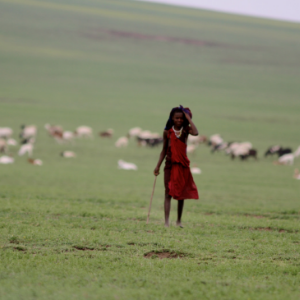
Closing Civil Society Space – What Environmental Funders Need to Know
Environmental protection and conservation are increasingly jeopardized by the marginalization and silencing of environmental action. Environmental actors everywhere experience new restrictions on their work that are rapidly increasing in scope and scale – a phenomenon commonly known as “closing civil society space”. This guide, a collaboration with the Environmental Funders Working Group of the Funders Initiative for Civil Society, outlines what environmental funders need to know about closing space – why is it happening, what is the impact on environmental protection, and what are the strategies to counter it that are working?

Findings from the 2018 Grantee Survey
Executive Summary
Every three years, Global Greengrants Fund conducts a worldwide survey of our global grantees as a way to reflect on how the organization contributes to grassroots environmental and social justice. From November 2017 to March 2018, we conducted a follow up survey to the one completed in 2015. This survey led to new and interesting findings, as well as portraying a few patterns from our last survey round.
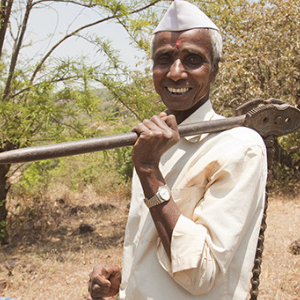
Findings from the 2015 Grantee Survey
Executive Summary
With so many grant recipients and a process that prioritizes flexibility and efficiency, it can be challenging to know exactly how each grant is moving the needle locally, regionally, and globally. That's why in 2015 we conducted our first third-party global evaluation, surveying 124 grant recipients in 41 countries. Learn more about the results of this survey, including highlights and useful insights for further discussion.
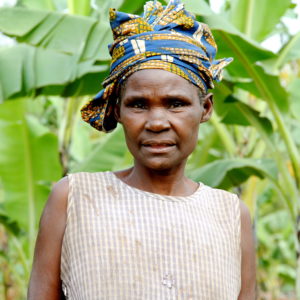
Executive Summary
Our Voices, Our Environment: The State of Funding for Women’s Environmental Action
This report represents the first-ever benchmarking of philanthropic funding in support of women and the environment. Its research shows that only 0.2% of all foundation funding focuses explicitly on women and the environment, signifying a missed opportunity for funders committed to ensuring a healthy environment and equitable world.
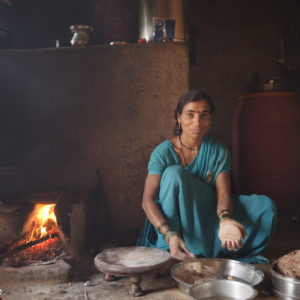
Our Voices, Our Environment: The State of Funding for Women’s Environmental Action
Global Greengrants and Prospera International Network of Women’s Funds released Our Voices, Our Environment: The State of Funding for Women’s Environmental Action. The publication is the first ever comprehensive mapping of funding in support of women’s environmental action. It includes case studies and success stories of women-led environmental projects, and guidance from women’s rights activists for funders that want to strengthen their existing grantmaking and take further action.
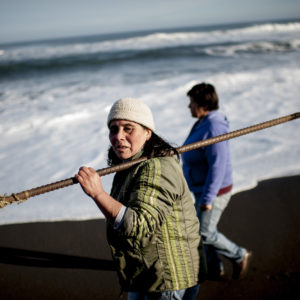
Next Steps for Funders
Our Voices, Our Environment: The State of Funding for Women’s Environmental Action
This publication provides three key opportunities for foundations to support gender equality and environmental justice work more effectively.
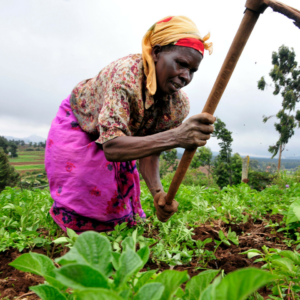
Climate Justice & Women’s Rights: A Guide to Supporting Grassroots Women’s Action
Drawing on lessons from case studies and specific examples of funding for women’s climate change initiatives, this Guide orients grantmakers to the importance of funding at the intersection of climate justice and women’s rights and provides guidance on how funders can collaborate to direct timely and appropriate funding to women and their communities.
